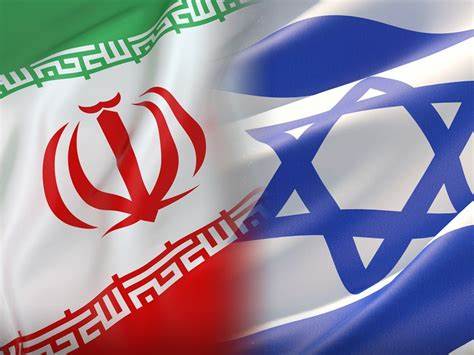On the night of April 14, 2024, a global audience watched with bated breath, the horrifying spectacle of hundreds of missiles and drones in the sky over the state of Israel launched from the Islamic Republic of Iran, as they homed in on targets, just as Israeli anti-missile defence system attempted to intercept and destroy them.
It was the first time that Iran was attacking Israel directly. It also marked a dangerous escalation in the on-going Israel war on the Palestinian strip of Gaza, which has been going on for about seven months now.
Iran’s justification for the attack was in retaliation for the April 1, bombing of its consulate in Syria, by Israel, in which a total of 16 persons, including two generals and several officers of the Iranian military forces as well as a woman and her son were killed. Following the incident, Iran vowed to retaliate against Israel for this outrage. This intention was conveyed to regional countries and to Israel’s western supporters, the United States, Britain, France and Germany, by the Iranian Foreign Minister Hossein Amir-Abdollahian, before the attack was eventually carried out.
As the Iranian attack was taking place, what was paramount in the minds of the watching world was whether Israel will also launch its own counter attack, which would almost certainly ignite a regional war in the Middle-East and possibly a Third World War, which will involve the global superpowers. There was also the fear that such a war might possibly involve the use of nuclear and other equally deadly weapons in the possession of both countries and their allies, a situation which would render the entire Middle-East region a burning toast of fire and charred remains of human life and infrastructure.
- I was close to General Murtala; he died poor – Ambassador Aminu Wali
- Food security: CISLAC asks FG to tackle corruption in ecological fund
The tension notched up when Israel vowed to inflict its own retribution in a “hard way inside Iran’’ in the words of Rear Admiral Daniel Hagari, spokesman of the Israeli Defence Forces, IDF. A few days after the Iranian attack on Israel, reports emerged of drone attacks on the Iranian city of Isfahan, which Iranian and other military sources attributed to Israel although the Israelis did not acknowledge such.
A critical assessment of the tit-for-tat attacks between Iran and Israel by observers showed that both sides showed great restraint in their actions. By informing regional countries and the US and its allies prior to attacking Israel and taking care to reveal the nature and scope of its actions, Iran hoped to give those countries the opportunity to track and bring down a great number of the missiles and drones it launched which was what happened. This helped to considerably limit the damage to Israel as no casualties were recorded.
Similarly, although Israel promised to strike hard in retaliation, what amounted to an attack on Iran was more limited and did not match the fierce rhetoric that the Israelis had earlier launched on their intentions to attack Iran.
This clearly indicates that both parties and their allies realise the greater danger to themselves and the world, should they allow the situation to get out of hand. It also shows that parties involved are willing to allow diplomacy and constructive engagement in de-escalating the situation.
Despite this, we still believe that the issues that brought the dangerous pass between Iran and Israel still loom large as both countries still harbour deep seated mutual misgivings. In this regard, Israel must be held responsible and condemned for its bombing of the Iranian consulate in Syria, which is a patently criminal act as it constitutes a gross violation of the Geneva and Vienna conventions as well as the United Nations charter on the inviolability of diplomatic premises.
But beyond that, riding on the strength of the diplomatic efforts that prevented Iran and Israel from going to war in this instance, it behooves the global superpowers and the United Nations to urgently and honestly work towards a comprehensive resolution of the issues at stake in the Middle East. Principal among these is the Palestinian question; the resolution of which is indispensible to the entire Middle-East conundrum.
In particular, we call on the United States of America, to encourage Israel to desist from its policy of intransigence and subversion of the sovereign rights of its neighbouring states as exemplified in the bombing of the Iranian consulate in Syria and similar acts in Lebanon and Iraq. There can never be peace and security in the Middle-East if Israel is allowed to go on acting with impunity in the region. It is actions of this nature that led us to the current dangerous impasse, which must not be allowed to degenerate beyond control to the ultimate detriment of the world.
The Middle-East is known historically as the cradle of human civilization, it should not become the cradle of human extinction.

 Join Daily Trust WhatsApp Community For Quick Access To News and Happenings Around You.
Join Daily Trust WhatsApp Community For Quick Access To News and Happenings Around You.

